Keywords: Eureka Street Radio
-
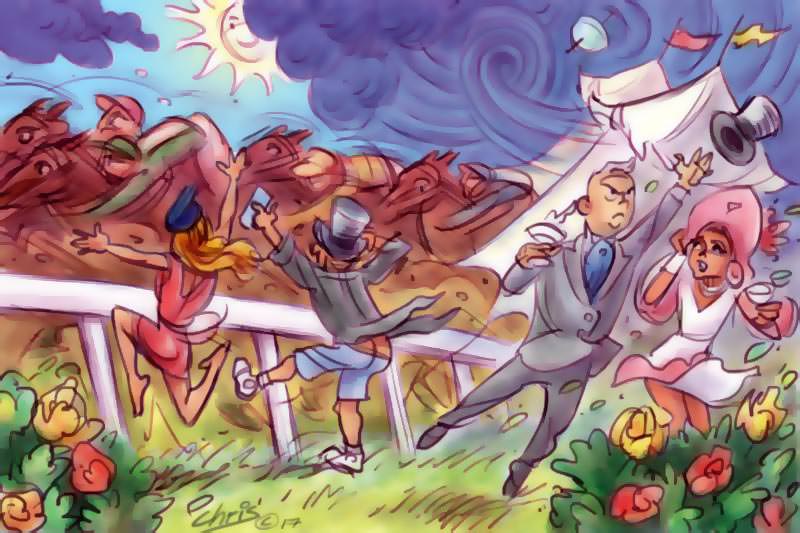
ARTS AND CULTURE
- Andrew Hamilton
- 03 November 2017
9 Comments
More recently, Mammon has dominated the Melbourne Cup. It has been targeted by wealthy international owners and stables who buy up the most likely stayers in order to buy the result. It has also been used by corporations to fuel their engines of misery that suck money and life out of many Australian families.
READ MORE 
-
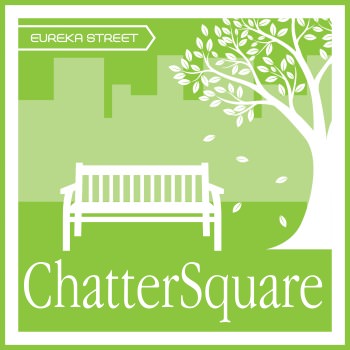
PODCAST
The latest exodus from The Age has again drawn attention to shifts in the media industry. Are Fairfax papers indispensable? What does the future hold for Australian journalists who have lost their job? If the business model for newspapers is no longer viable, what does that mean for the value we place on journalism? Jonathan Green joins us on ChatterSquare to ponder these and other questions.
READ MORE
-
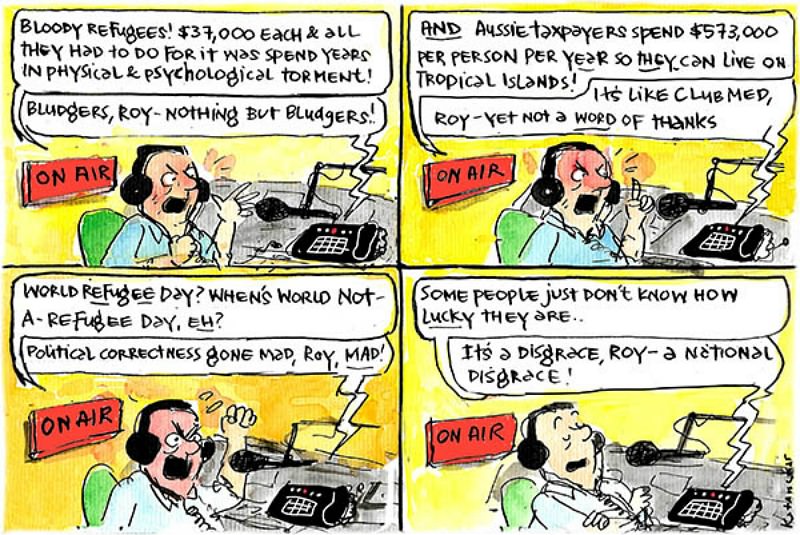
CARTOON
- Fiona Katauskas
- 19 June 2017
This week's offering from Eureka Street's award winning political cartoonist.
READ MORE 
-
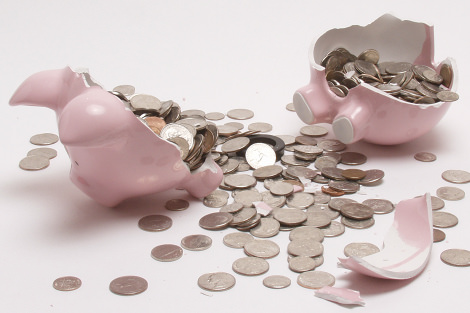
AUSTRALIA
- Francine Crimmins
- 14 April 2017
15 Comments
As a millennial, I frequently find myself being told to stop complaining about housing affordability. It's all about working harder, saving more and, for goodness' sake, keeping off the avocado. As a young person, I'm concerned about using super, a system which was put aside for our economic welfare in retirement, as a savings account for instant gratification. The government is trying to solve the housing crisis not through direct action, but by encouraging young people into lifelong debt.
READ MORE 
-
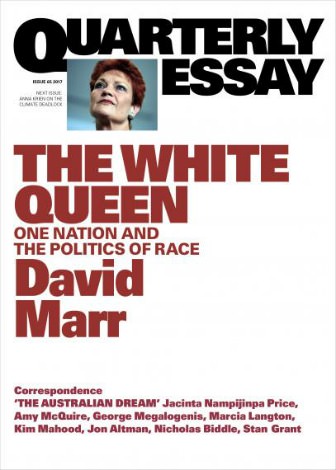
AUSTRALIA
- Irfan Yusuf
- 05 April 2017
16 Comments
Hanson doesn't pretend to be religious. Her anti-Islam agenda isn't inspired by some rightwing evangelical passion like Danny Nalliah's nor by a conservative moralistic Catholicism like Cory Bernardi's. But she clearly can feel the pulse of many in the electorate who worry about terrorism and national security. Hanson's politics really only work when there is a 'them' for 'us' to worry about. But where does she get this idea that Islam is not a religion but an ideology?
READ MORE 
-

ARTS AND CULTURE
- Mary Manning
- 09 November 2016
17 Comments
'Pull the levers, scoop the coffee, flatten it, steam fragrant liquid into white cups. My lever-pulling right arm has huge muscles from my coffee ballet. Around me: the buzz of conversations about people's plans for their day. No one knows I am lonely.' Short story by former Eureka Street editorial assistant Mary Manning, who died on Tuesday 8 November 2016.
READ MORE 
-

ARTS AND CULTURE
- Darby Hudson
- 13 April 2016
3 Comments
Thinking my jadedness of the nine-to-five was vindicated, I crossed the road at lunchtime where this tow-truck was waiting its turn at the lights. The trucker had 'Born on the Bayou' by Credence blasting through open windows. Thought he had an amazing sound system. Then realised he had a drum-kit set up on his dash and was going for it with his sticks in time to the tune. He made his day job look easy — and all of a sudden I felt like a small little angry man. He made my week.
READ MORE 
-

AUSTRALIA
- John Warhurst
- 01 December 2015
9 Comments
Historically, it was Labor that was dogged by splits and ideologues, while the Liberals were perceived as practical. But the ideological chasm between Abbott and Turnbull suggests the Liberals are now a broader church than Labor. The party's ideological and factional conflict will continue unabated as the government contemplates the two big public debates of its next term: a referendum on constitutional recognition of Aborigines and Torres Strait Islanders and a plebiscite on same sex marriage.
READ MORE 
-
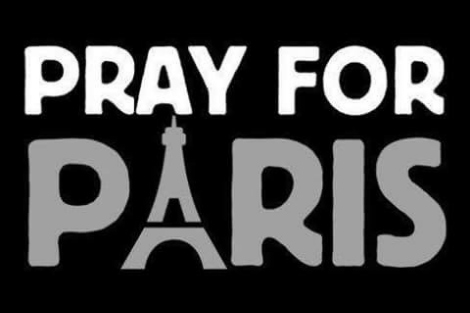
INTERNATIONAL
- Fatima Measham
- 20 November 2015
12 Comments
It is tempting to view the aftermath of terrorist attacks such as those in Paris as a well-rehearsed script. There are condemnation of the killings, sympathy for the families of victims, resolve to seek and punish perpetrators, expressions of solidarity across nations. Also, assaults targeting Muslims on the street and in policy. This time a few things have gone off-script. 'Hugs and hashtags' won't stop ISIS, but there is strength in refusing to cede control over our language and behaviour to terrorists.
READ MORE 
-
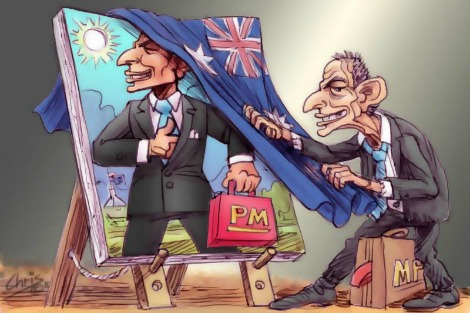
AUSTRALIA
- Fatima Measham
- 12 October 2015
18 Comments
Australia has a long line of prime ministers whose standing has been propped up over time. Edmund Barton was a racist; Alfred Deakin spoke against 'undesirable coloured aliens'. The passage of time tends to extract the essential parts of a prime minister's stint, which is how complex figures like Whitlam, Fraser, Keating and Howard end up being rehabilitated in collective memory. It's hard to tell whether there is enough complexity in Abbott and his time as prime minister to enable such restoration.
READ MORE 
-
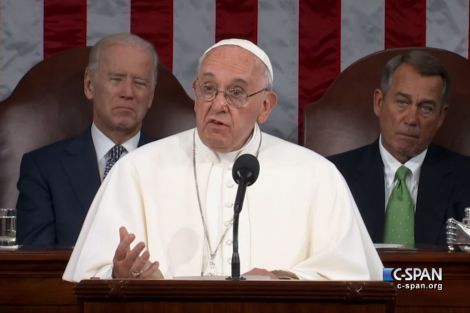
INTERNATIONAL
- Fatima Measham
- 30 September 2015
28 Comments
The only people who regard Francis as radical are those who think popes should only attend to matters of personal conscience. Topics such as abortion and same-sex marriage are safe zones for comment because they don't concern the economic order, or threaten systems that generate wealth for the few. But Francis has smudged the line between faith and economics in a way that many conservatives find inconvenient.
READ MORE 
-

EUREKA STREET TV
- Peter Kirkwood
- 09 September 2015
1 Comment
Last week's image of Aylan Kurdi was emblematic of a range of current social crises: religious and ethnic conflict, discrimination and inequality, terrorism, the plight of migrants and refugees. Western Sydney University Humanities lecturer James Arvanitakis sees education as the key to grappling with them beyond the knee-jerk response to the disturbing images.
READ MORE 